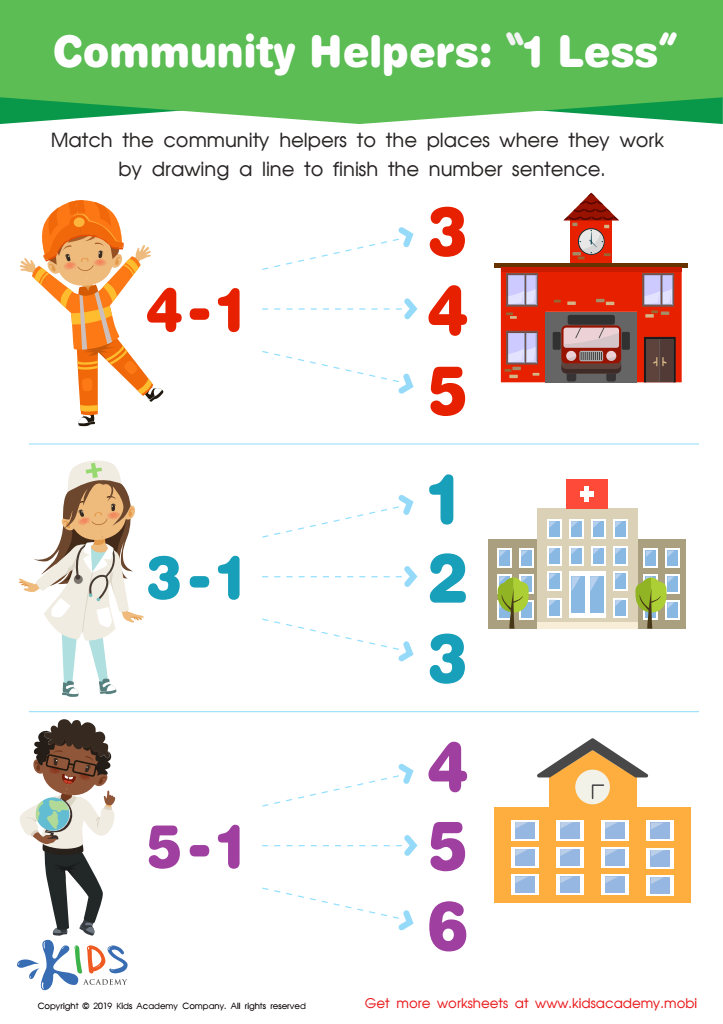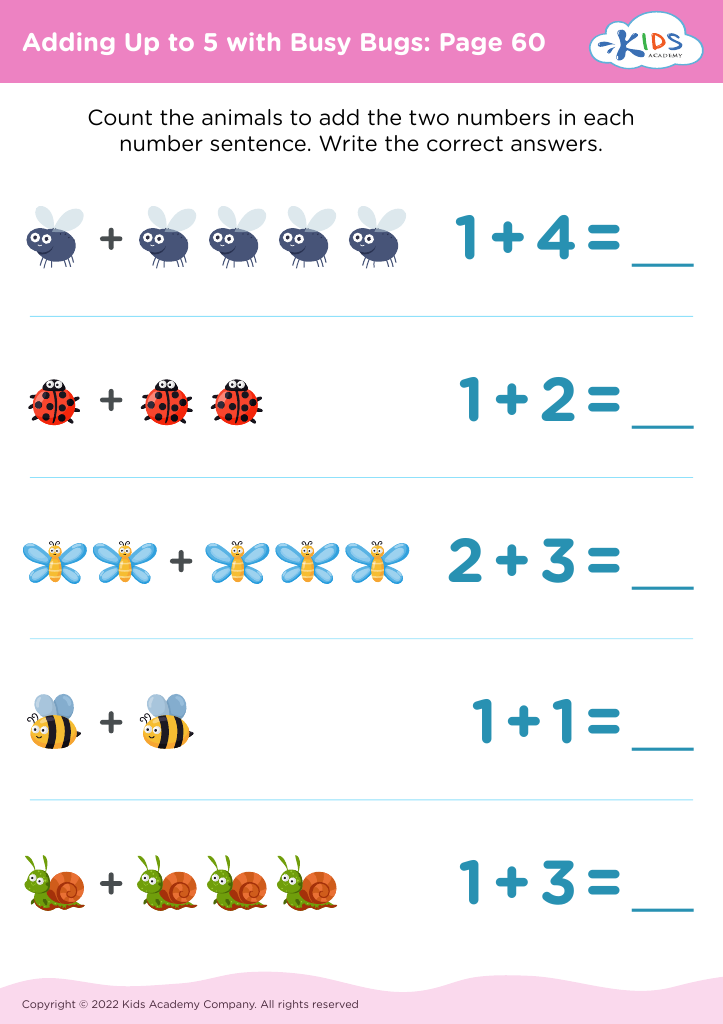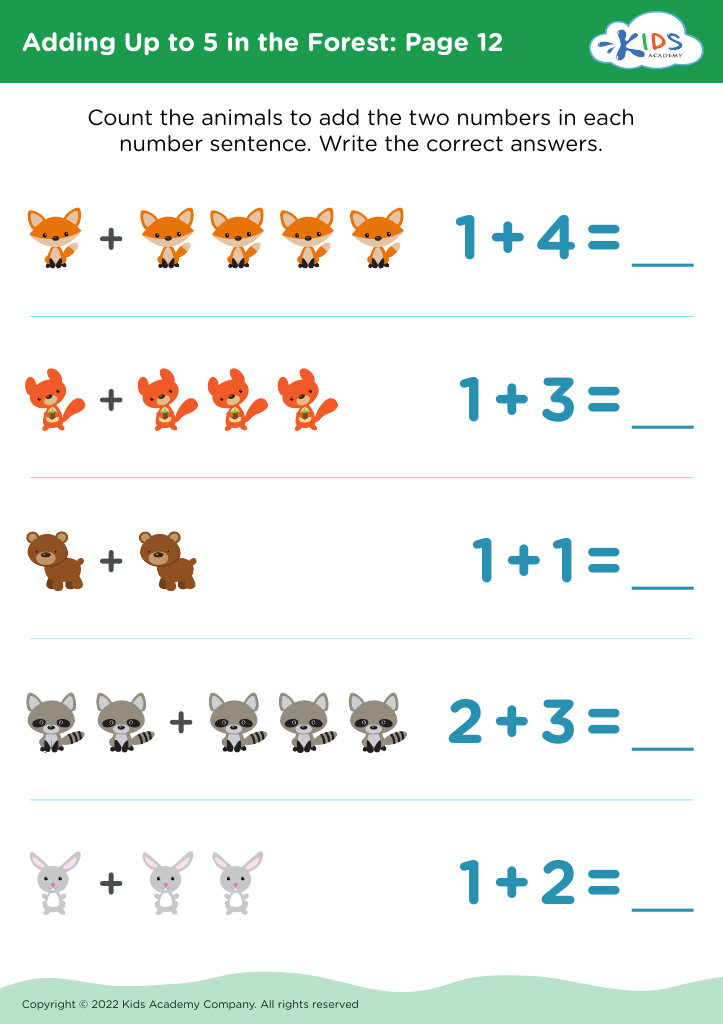Basic counting skills Addition & Subtraction Worksheets for Ages 3-5
3 filtered results
-
From - To
Boost your child's early math proficiency with our engaging Basic Counting Skills Addition & Subtraction Worksheets for ages 3-5! Designed to captivate young learners, these worksheets offer a vibrant and interactive approach to mastering the fundamentals of addition and subtraction. Featuring fun illustrations and age-appropriate activities, children will develop essential counting skills while gaining confidence in solving simple math problems. Parents and educators will appreciate the ease of use and educational value these worksheets provide. Perfect for home or classroom learning, our resources nurture mathematical thinking in a playful, supportive environment. Start your child's math journey today with our beautifully crafted worksheets!


Community Helpers: 1 less Worksheet
Basic counting skills, along with the foundational concepts of addition and subtraction, are essential for children aged 3-5 as they lay the groundwork for future mathematical understanding. At this early stage, children begin to develop their number sense—an understanding of quantities, relationships, and numerical operations. Engaging with counting and simple arithmetic fosters cognitive development, enhancing critical thinking and problem-solving skills.
Teaching these skills through playful activities encourages exploration and curiosity. For instance, using everyday objects like toys or snacks allows children to visualize concepts, making learning both fun and relevant. Additionally, building a solid base in mathematics during these formative years can significantly boost a child’s confidence and positive attitude towards learning.
Parents and teachers play a crucial role in nurturing these skills, as consistent practice and encouragement solidify a child’s comprehension. Early familiarity with numbers and operations cultivates an enthusiasm for mathematics, reducing anxiety about the subject in later years. By prioritizing basic counting, addition, and subtraction, adults can help children develop not only essential intellectual tools but also a lifelong love of learning. This early investment in math skills pays off academically and supports overall cognitive growth and emotional development.


 Assign to My Students
Assign to My Students





















